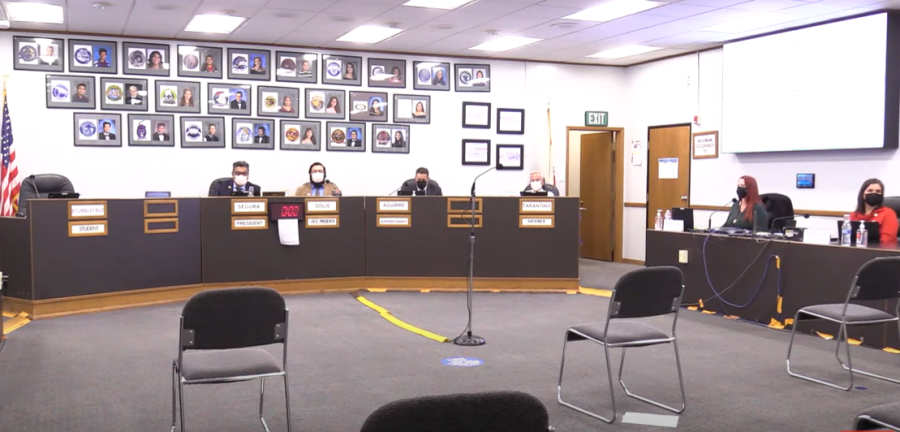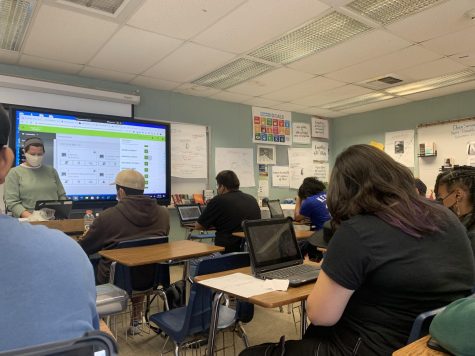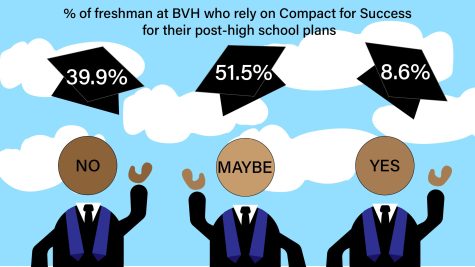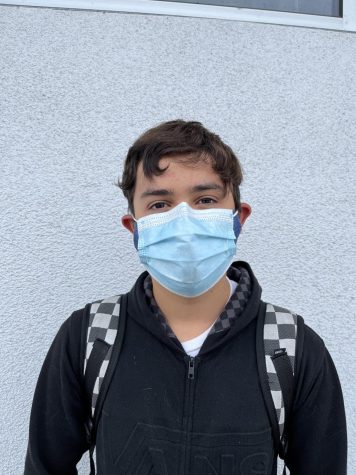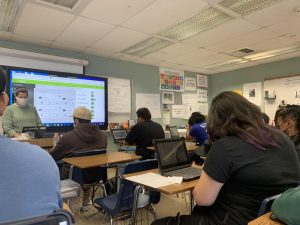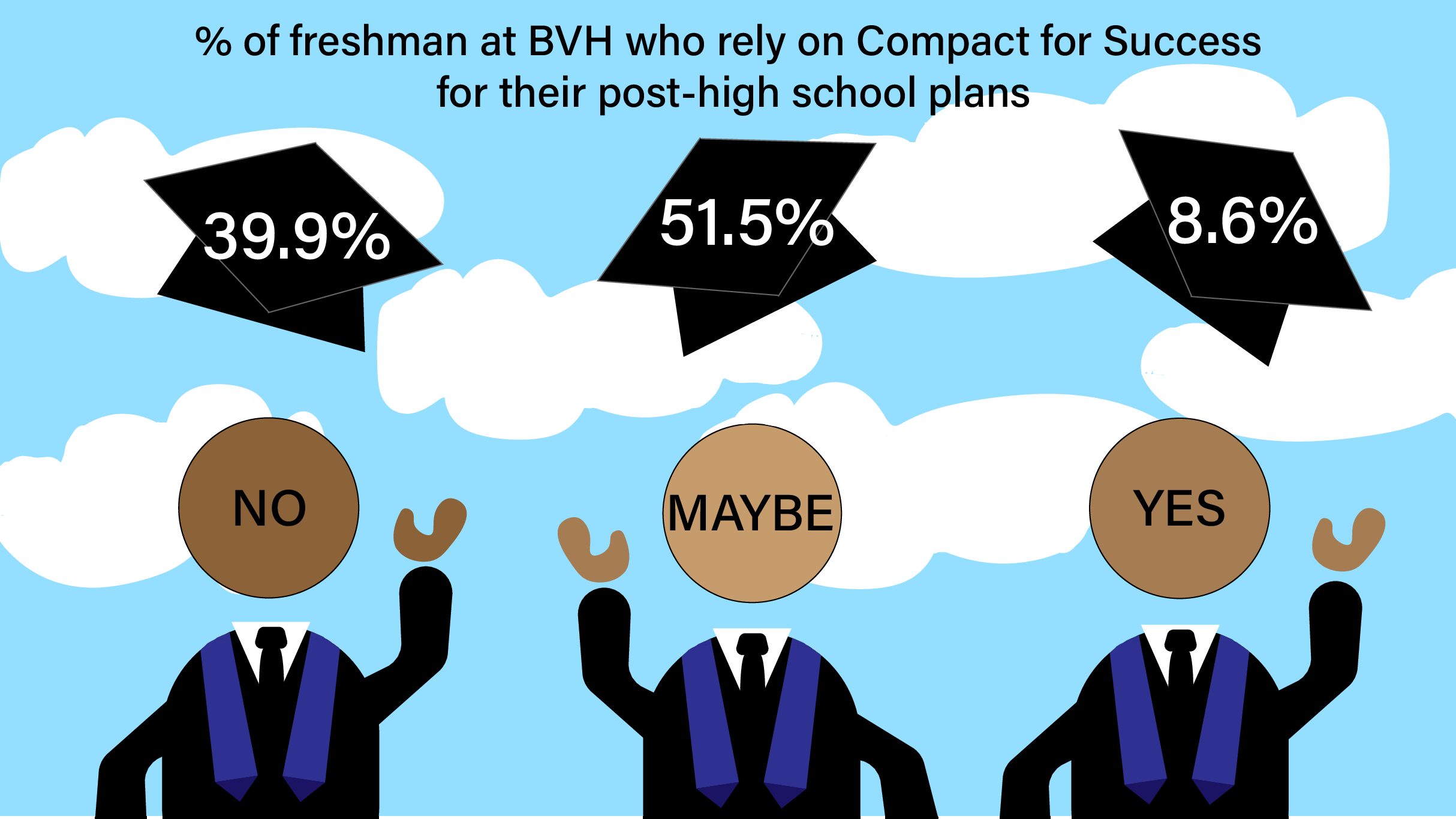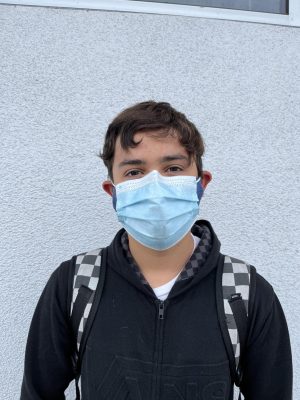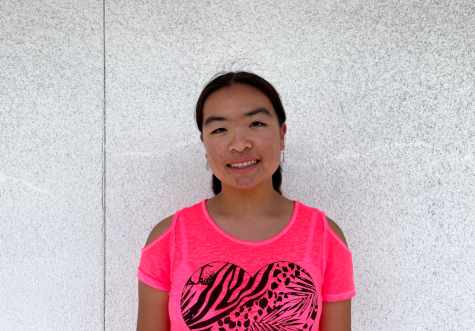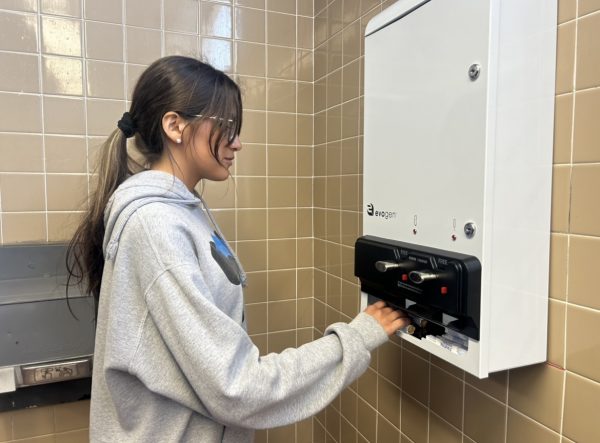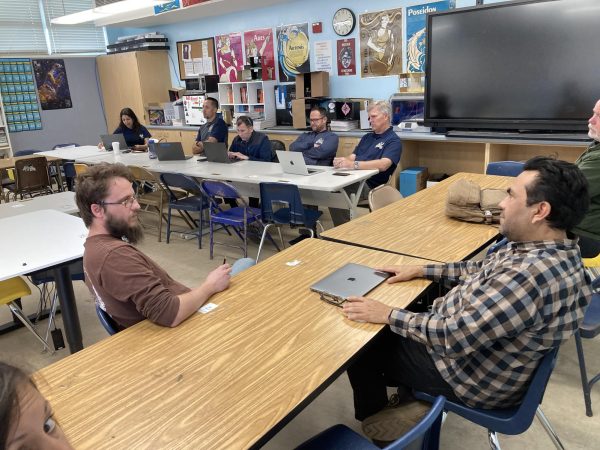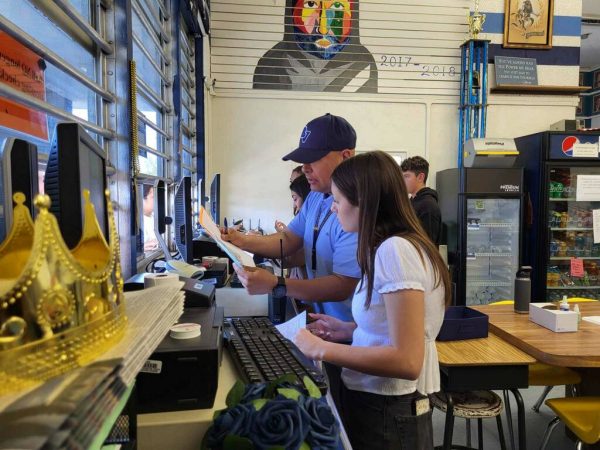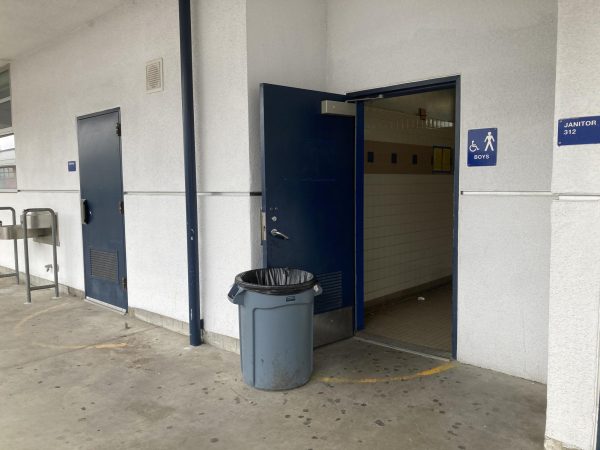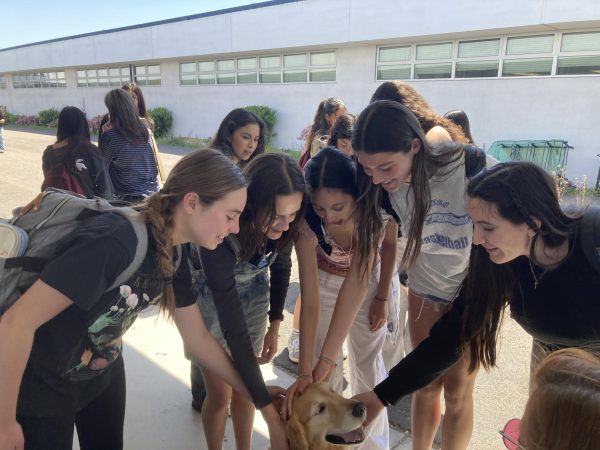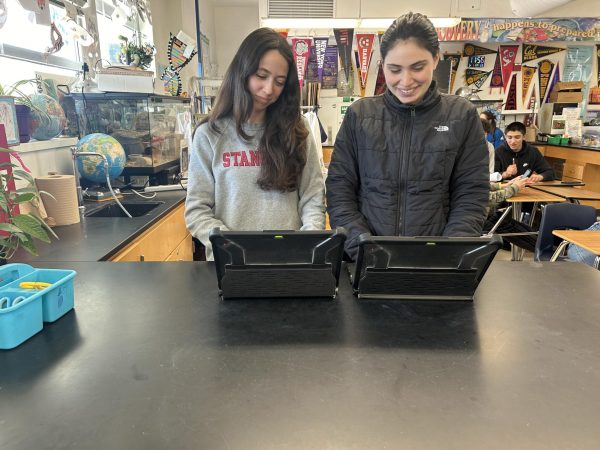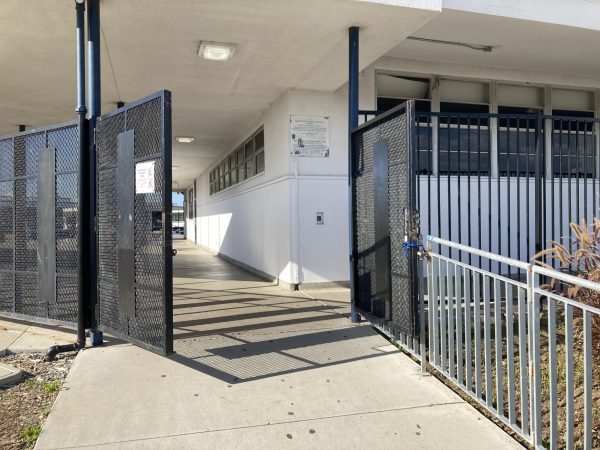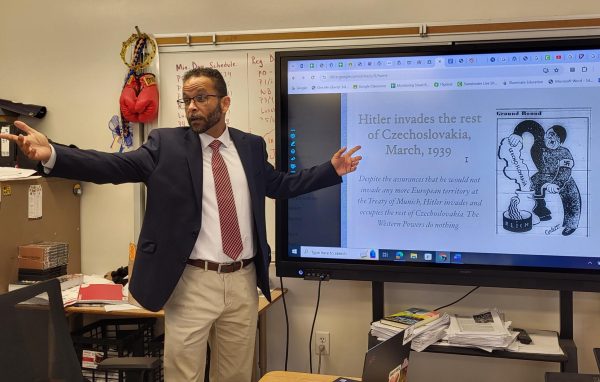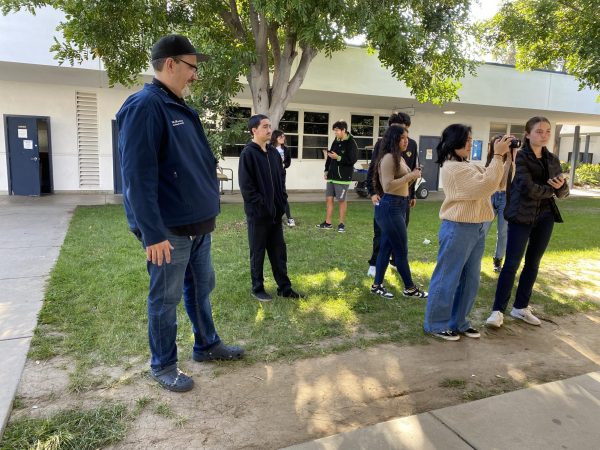“Are you ready to fill those classrooms in February?”
SUHSD Board of Trustees passes COVID-19 vaccination mandate for 2022-2023 school year
SUHSD Board members present Resolution No. 4762 to attendees. SUHSD Superintendent Moisés Aguirre Ed.D takes the lead in the discussion, reviewing COVID cases and vaccine availability within the district.
January 3, 2022
On Dec. 13, the Sweetwater Union High School District (SUHSD) Board of Trustees adopted Resolution No. 4762 with a 5-0 vote. This vote officially passed the COVID-19 vaccination mandate for SUHSD staff, students and facilities.
The mandate will require students and staff to be fully vaccinated by March 15, 2022, in order to continue with in-person instruction for the 2022-2023 school year. Students who are unable to receive full vaccination will be referred to an Independent Study program, where they will resume distance learning. However, students who wish to continue involvement with their extracurriculars this school year must be vaccinated by Feb. 5, 2022.
“Our goal is to continue with in-person instruction to the [furthest] degree possible, obviously that is our primary driving objective in bringing this forward,” SUHSD Superintendent Moisés Aguirre Ed.D. said. “We have students, we have staff, we have parents; a broader community that’s impacted by the rules and procedures that we adopt. Taking all these considerations into account, the vaccine mandate is the single best protective tool.”
Board of Trustee members noted that dates are susceptible to change as full Food and Drug Administration (FDA) vaccine authorization for students under 16 is still pending. For students below 16, vaccination would be strongly recommended but not mandated. Medical and religious exemptions for students and staff will be allowed in accordance with legal guidelines, in addition to being examined on a case-by-case basis. Notice of religious or health exemptions for staff and students will be required by February 1, 2022. Additionally, any notice of retirement by a staff member as a result of the mandate will be required by the same date.
“[Vaccination is] key to our ability to staff [schools]. [We] cannot wait. [Otherwise we] may have to start school without a full staff,” Aguirre said.
SUHSD teachers and parent speakers who attended the board meeting spoke of how the mandate would threaten to cut staffing across schools within SUHSD. Approximately 14 percent of reported staff members have yet to report full vaccination, according to Aguirre. SUHSD Special Education teacher and speaker Terry Sparks expressed his frustrations over the mandate to the board. He claims that “vaccinated staff will be free to work, while unvaccinated staff will be fired.”
After addressing potential threats to staffing, the Board of Trustee members discussed the history of the resolution and the need to promptly approve the mandate. Prior efforts to mandate the vaccine ended with a call to implement regulations before July 2022. This would be in line with suggestions made by California Governor Gavin Newsom. However, a new resolution was presented and discussed how the rise in the Delta and Omicron variant should cue immediate action.
“Within district boundaries, there have been 1096 deaths or roughly 25 percent of the county’s deaths [due to COVID-19]. While most individuals infected with COVID-19 suffer less severe symptoms, the pandemic has resulted in far-reaching impacts to district staff, students and the community; ranging from sickness, isolation, job loss [as well as] community and school closures,” Resolution No. 4762 cites. “Now more than ever, additional safety protocols need to be considered so students and staff can remain safe [during] in-person instruction and work.”
Despite having been presented with the health risks of an increase in cases within SUHSD, every registered speaker present at the meeting spoke out against adopting the resolution. Their heated speeches discussed the resolution’s “inequality and injustice”, according to speaker Jessica Macidrick, in addition to the board’s “lack of legal authority to mandate the vaccine”, as claimed by speaker Rachel Ruden. A common theme across all discussions was the word “segregated” in reference to the students and staff that would refuse to receive the vaccine.
“It violates civil rights. Unvaccinated kids will be segregated to online learning,” T. Sparks said.
It violates civil rights. Unvaccinated kids will be segregated to online learning
— Terry Sparks
Others spoke of the mandate’s potential to empty classrooms entirely. Approximately 12,000 kids would be “excluded” from in-person instruction, as claimed by SUHSD teacher and speaker Lindsey Sparks. Recovering from a financial crisis, speaker Shane Strobber cited how it would be a detrimental decision for the district to make financially.
“You just can’t afford to do this, medical aside,” Strobber said.
A few BVH staff members, on the other hand, believe that a vaccine mandate would be beneficial. Math Fundamentals and Integrated Math III teacher Aurelio Esparza and Biology Accelerated teacher Joseph Szakovits stated their opinion towards the vaccine.
“Personally, I’m vaccinated and I think everybody should be vaccinated,” Esparza said. “I know that not everybody thinks as I do, so I don’t think it should be mandated among staff members and everybody. At the same time, if it’s not gonna be mandated I do think there has to be measures in place in order to minimize risk, like weekly testing to make sure that you don’t have COVID.”
Szakovits also expressed his strong opinions, saying how he supports vaccines. He emphasized that the research and data behind the vaccines prove their effectiveness.
“All the data shows that the vaccines that we have are safe, that they work, and I think that [research on vaccine safety] is something everybody’s able to do. I think everyone should get it, and I think we need to be out there encouraging them,” Szakovits said.
COVID-19 has impacted both Esparza and Szakovits in and out of their workplace. The way they teach, for instance, has changed due to the virus and the practices adopted from distance learning. Both have described that the vaccines will help society get back to some sense of normalcy similar to how it was prior to the pandemic.
“I’m grateful that we have [vaccines]. I think they’re extremely valuable in order to get us back to normal. I appreciate the science and research that has gone into them so that we can get back onto campus and get back to [the] normality that had [been] taken away from us almost two years ago,” Esparza said.
Sharing a similar opinion, Szakovits also added that vaccines will have a positive impact on safety, school events and extracurriculars. Ultimately, the COVID-19 vaccination mandate will officially go into effect as we approach the new school year. Despite varying opinions on the necessity of a mandate, Szakovits and Esparza agree that its impacts will be felt throughout the community.
“Truth is, I don’t think things are ever gonna be 100 percent normal. That’s a hard truth that I think a lot of people don’t wanna hear. [However] the more people in our community that are vaccinated, the closer we will be able to get to that,” Szakovits said. “It’ll positively impact things like sports, extracurriculars [and] assemblies [but] safety is the number one reason. I think this wouldn’t be pushed for if there wasn’t strong data to indicate that it would make both our staff and our students safer.”

